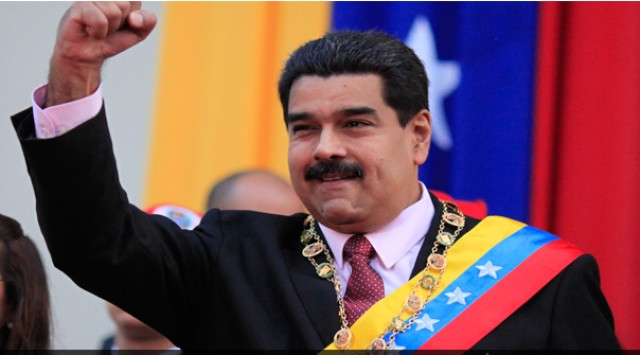The United States has increased its bounty on Venezuelan President Nicolas Maduro—who is facing federal drug trafficking charges—to $50 million as of Thursday.
This action was described by Maduro's government as "pathetic" and "ridiculous."
Washington does not recognize Maduro’s last two election victories, accusing him of leading a drug trafficking organization.
Attorney General Pam Bondi announced the $50 million reward in a video on social media, stating, “He is one of the largest narco-traffickers in the world and a threat to our national security.”
Previously, the bounty was set at $25 million in January. Venezuelan Foreign Minister Yvan Gil criticized Bondi’s announcement as "the most ridiculous smokescreen we have ever seen," asserting that "the dignity of our homeland is not for sale" and rejecting what he called a crude political propaganda operation.
In 2020, during Donald Trump's presidency, Maduro and other senior Venezuelan officials were indicted on multiple charges in New York federal court, including involvement in a “narco-terrorism” conspiracy.
The Justice Department alleges Maduro leads a cocaine trafficking group known as "The Cartel of the Suns," which reportedly shipped vast amounts of narcotics into the U.S. over two decades and generated hundreds of millions of dollars in revenue.
The cartel is said to have collaborated closely with the Revolutionary Armed Forces of Colombia (FARC), designated a terrorist group by the U.S. Bondi also mentioned Maduro’s ties to the Venezuelan gang Tren de Aragua and Mexico’s Sinaloa cartel.
The U.S. Drug Enforcement Administration (DEA) has reportedly seized 30 tons of cocaine associated with Maduro and his affiliates, including nearly seven tons directly tied to Maduro.
Since September of last year, the U.S. government has seized over $700 million in assets connected to Maduro, including two Venezuelan government aircraft.
Bondi emphasized that "Maduro’s reign of terror continues,” insisting that under President Trump’s leadership, Maduro would face justice for his alleged crimes.
The 62-year-old Maduro, who once worked as a bus driver and trade unionist, could face life in prison if tried and convicted. At the time of his indictment, Maduro dismissed the accusations as "spurious" and "false."
In June, former Venezuelan intelligence chief Hugo Armando Carvaja pleaded guilty to drug trafficking and narco-terrorism charges, reportedly offering to assist U.S. authorities with documents and testimony against Maduro.
The relationship between Washington and Caracas has soured over the years, with the U.S. not recognizing Maduro as the legitimately elected president since what the State Department described as a “deeply flawed 2018 presidential election.”
The State Department condemned Maduro’s fraudulent claim to victory in the July 28, 2024, presidential election. The United States, alongside various other countries, has refused to acknowledge Maduro as the legitimate president following that election.
The U.S. has imposed numerous economic sanctions on Maduro’s government, which has consistently denounced American interference.
On Thursday, Interior Minister Diosdado Cabello revealed that authorities had foiled a bomb plot in a commercial area of Caracas and accused the U.S. and Venezuelan opposition of orchestrating the attempted attack.




















